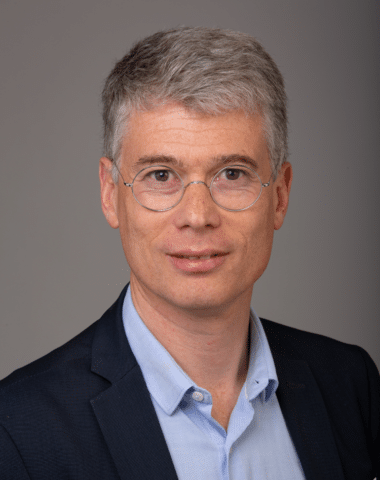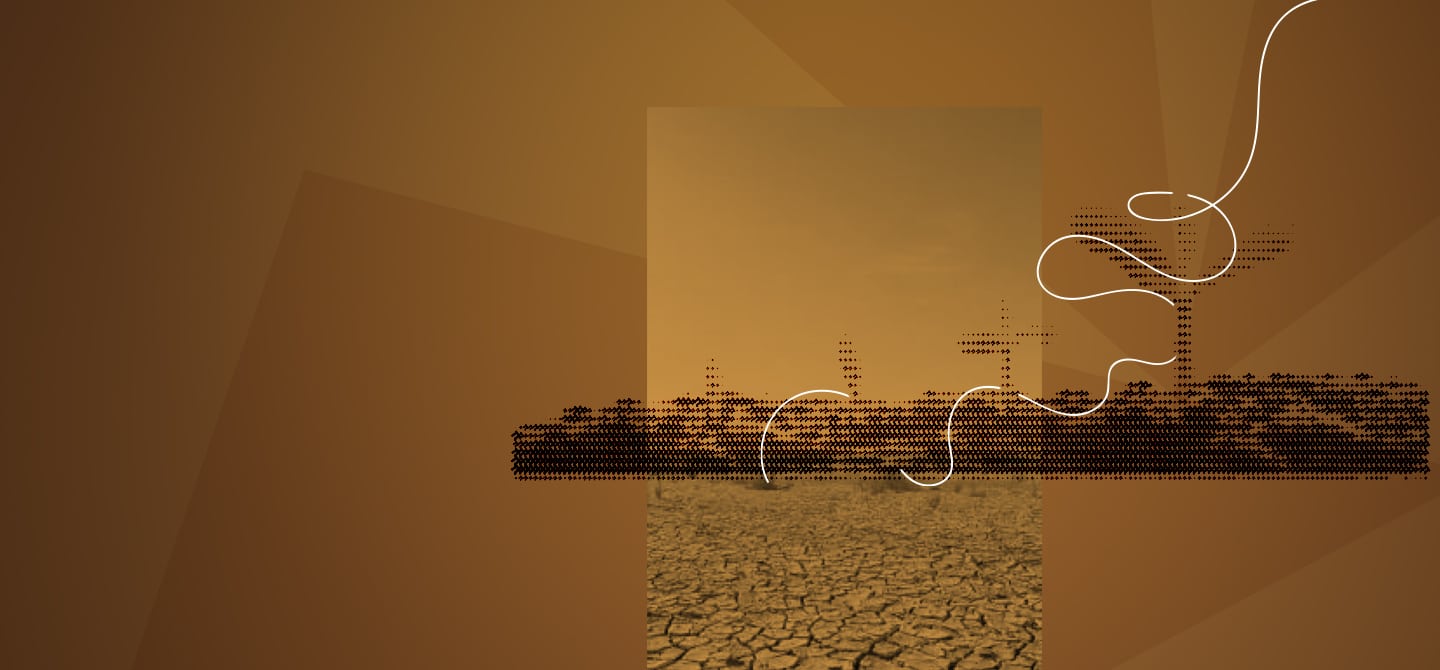“Climate change happens 20% faster in the Mediterranean”
Along with the polar regions, the Mediterranean basin is one of the locations in the world most impacted by the effects of climate change. Temperatures there are rising 20% faster than elsewhere; already 1.5°C higher than pre-industrial temperatures. For every 1°C increase, there is a ~4% rise in rainfall. This shift is leading to a paradoxical effect on climate, characterised by more extreme precipitation and much longer periods of dry spells and droughts – with 10–30% less summer rainfall.
Projections show that in the worst-case scenario, temperatures could rise as much as a further 6.5°C by the end of the century. Sea level has risen by 6 cm over the past 20 years and is expected to upsurge by another 90 cm between now and 2100, and observations of the Mediterranean Sea show increases in salinity and acidification. Not to mention the presence of invasive species both on land and in the sea, with repercussions on local biodiversity.
Hence, now is the time for proactive solutions moving forward in region. In November 2020, the independent network of Mediterranean Experts on Climate and environmental Change (MedECC), founded in 2015, published the report, “Climate and Environmental Change in the Mediterranean Basin Current Situation and Risks for the Future 1st Mediterranean Assessment Report” 1. MedECC combines efforts from 190 experts such as myself from 43 countries in the EU, North Africa and Middle East. Referred to as MAR1, the report outlines climate and environmental issues specific to the Mediterranean and what to expect in the coming years.
Mediterranean energy transition
In the chapter of MAR1 on the energy transition, which I coordinated through the Energy4Climate interdisciplinary Centre 2 and Institut Pierre Simon Laplace 3, we show that the Mediterranean region is responsible for only a comparatively small share of global greenhouse gas emissions – as little as 6%. Nonetheless, the region is greatly affected by their effects.
Climate change in the Mediterranean is expected to affect energy production (due to impacts on resources and infrastructure) and energy use (by decreased heating demand and increased cooling needs). We expect fossil fuels to remain the main source of energy until 2040, which will gradually be phased out by other technologies. The figures show that the share of renewable energy will triple to reach as much as 27% of the overall mix. A factor to consider is that warming in the region is actually expected to result in losses in renewable energy production. The impact of such will be marginal if global warming does not exceed 2°C, however it will drastically deteriorate if temperatures rise beyond 2°C.
Traditional hydropower and thermoelectric power capacity is expected to decline due to decreased streamflow and increased water temperature – sea surface temperature could increase by another 1–4°C by the end of the century. Nonetheless, by further improving energy efficiency and deploying renewable energies on a large scale, the entire Mediterranean region can reduce tensions over energy security for importing countries, improve opportunities for exporting countries and reduce costs of energy and environmental damage for the whole region.
To be successful in its large-scale energy transition, the region will need more inclusive energy policies that will undoubtedly pass by a more collaborative approach from the countries concerned. Even though the shift is not a given, there is great potential for clean power in the region, particularly solar. There are already regional collaborations on the go, which are helping to facilitate this movement across countries and states in the area. These include energy market regulators like MEDREG and MEDSO, or MEDENER an agency focused on environmental and energy policies on both sides of the Mediterranean.
Efforts like these will hopefully encourage countries to successfully move away from fossil fuels to the benefit of the environment. Moreover, policies and action should also create jobs and improve the social well-being for the population.
Improving energy efficiency and deploying renewable energy on a large scale will therefore become necessary.
Changing local practises
Above the fact that the geographical position of the zone is an amplifier of global warming making the zone a “hot spot”, the MAR1 report also talks about other problems specific to the Mediterranean. At sea, the consequences of rapid regional climate change are the increasing acidification of seawater and the rise in average sea level. On land, there is an increase in duration and amplitude of heat waves and a decrease in summer precipitation in some regions, resulting in increased water shortages and desertification.
Factors of change also include population growth, pollution of the air, soils, rivers and oceans, unsustainable land and sea use practices. Combined, these effects have numerous consequences such as degradation of natural resources, reducing the availability of fresh water, thermal comfort, and increasing risks to human health. Those particularly affected will be disadvantaged and vulnerable populations. Conflicts caused by resource scarcity and human migration are likely to increase due to drought and the deterioration of agricultural and fishery resources, but socio-economic and political factors are likely to still play a major role.
As such, MAR1 sets the groundwork for the region to start thinking about the answers to the big questions yet to come: how can the region adapt to the changing climate? What information will help support future policies? Can the Mediterranean be more sustainable?
MAR1: the COP of the Mediterranean
The report was established in the same way that the Intergovernmental Panel for Climate Change (IPCC) wrote their five assessment reports between 1990 and 2013, the latest supporting the negotiations that led to the Paris Agreement in 2015 4. As for IPCC, MedECC provides an assessment that provides information relevant to policy makers, however is not prescriptive and does not provide recommendations to decision makers on what to do. Moreover, the focus of the MAR1 is on adaptation to climate change rather than mitigation as the latter must be addressed on a global scale.
As a collective, MedECC were awarded the North-South Prize by the Council of Europe 5. It is a prize that most notably rewards people for their efforts in human rights protection – a European version of the Nobel Peace Prize, one could say. This year was one of the rare occasions it was awarded to a group instead of individual people.














